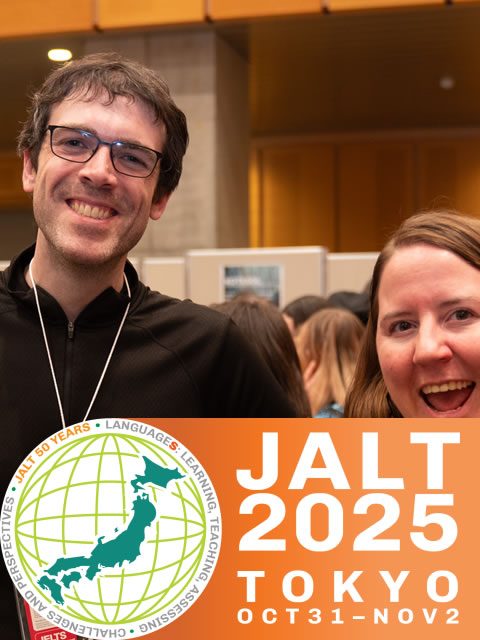Textbooks and Vocabulary: Two Three Problems and a Way Forward
Dr. Dale Brown
On February 1, Shinshu JALT was very pleased to welcome to Nagano Dr. Dale Brown from Kanazawa University to speak on vocabulary learning, a topic of importance for all language teachers.
Dale began by briefly introducing the three (up from the original title’s two) textbook problems that he argues may limit the effectiveness of student vocabulary learning: vocabulary selection concerns, limited vocabulary recycling, and lack of attention to the multiple aspects of vocabulary knowledge. (Nation, 2001, identifies nine aspects.) These problems can be restated as one long question — Are textbooks presenting a lot of useful, level-appropriate words, recycling them sufficiently, and promoting vocabulary learning that is more than form-and-meaning deep?
Most of the first hour was focused on investigating that question. Dale presented and discussed a number of studies and then clearly summarized the research findings. Textbook vocabulary selection often seems accidental rather than deliberate, recycling rarely happens enough for learning to take place, and the commonsense understanding that equates vocabulary learning with knowledge of word meaning dominates textbook vocabulary activities.
Before concluding the first half, Dale proposed a simple way forward. The first problem, textbook vocabulary selection, is unfortunately one we cannot easily solve. The best most of us can do is hope that some of Dale’s vocabulary research reaches the ears of textbook writers. So, accepting that our job is to “build on our books,” we should try tackling problems two and three together by developing recycling activities that focus on different aspects of vocabulary knowledge. He ended the first session by projecting 27 test words onto the screen, which made some of us a bit nervous…
But in the second half we had fun! Dale introduced three recycle activity types – recall, analysis, and creative – which vary in terms of instruction style and time requirement, and showed how they could be used to develop other vocabulary knowledge like spoken knowledge, word part knowledge, and collocations. Using the 27 words from the screen, Dale demonstrated how teachers with limited and defined sets of words (from a textbook) can use easy-prep activities to extend and enhance vocabulary knowledge. An added plus is that the boring and often ineffective study method of vocabulary memorization is replaced with an engaging activity that can also create opportunities for interaction and communication. If you would like more details about textbook vocabulary research or about these activities, please take a look at Dale’s publications listed below.
Dale concluded by affirming that time spent recycling vocabulary, especially when combined with enhancing vocabulary knowledge, is time well-spent. For vocabulary learning, the way forward includes looking back.
Once again, Shinshu JALT thanks Dale Brown for spending the morning and lunchtime (Nagano soba) with us!.
Brown, D. 2010. Building on your book: Vocabulary activities to enhance your textbook. In A. M. Stoke (Ed.) JALT2009 conference proceedings. Tokyo: JALT. pp. 254-263.
Brown, D. 2011. What aspects of vocabulary knowledge do textbooks give attention to? Language Teaching Research 15/1: 83-97.
NPO The Japan Association for Language Teaching
特定非営利活動法人 全国語学教育学会

